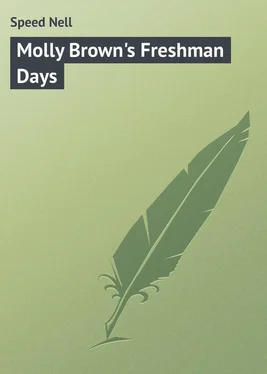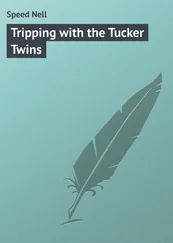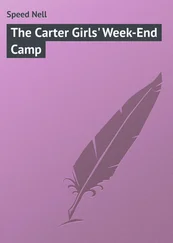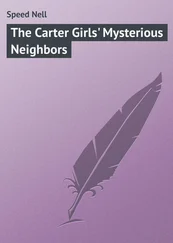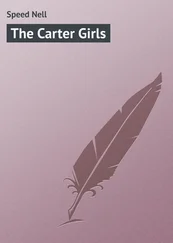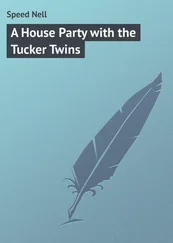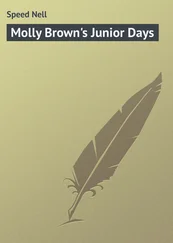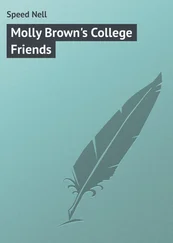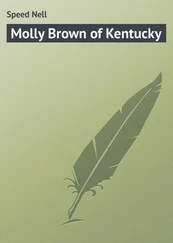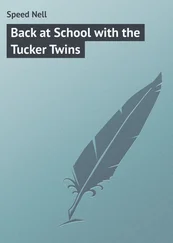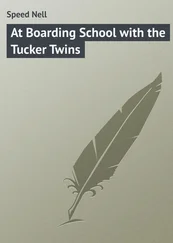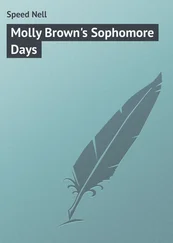Nell Speed - Molly Brown's Freshman Days
Здесь есть возможность читать онлайн «Nell Speed - Molly Brown's Freshman Days» — ознакомительный отрывок электронной книги совершенно бесплатно, а после прочтения отрывка купить полную версию. В некоторых случаях можно слушать аудио, скачать через торрент в формате fb2 и присутствует краткое содержание. Издательство: Иностранный паблик, Жанр: foreign_prose, на английском языке. Описание произведения, (предисловие) а так же отзывы посетителей доступны на портале библиотеки ЛибКат.
- Название:Molly Brown's Freshman Days
- Автор:
- Издательство:Иностранный паблик
- Жанр:
- Год:неизвестен
- ISBN:нет данных
- Рейтинг книги:5 / 5. Голосов: 1
-
Избранное:Добавить в избранное
- Отзывы:
-
Ваша оценка:
- 100
- 1
- 2
- 3
- 4
- 5
Molly Brown's Freshman Days: краткое содержание, описание и аннотация
Предлагаем к чтению аннотацию, описание, краткое содержание или предисловие (зависит от того, что написал сам автор книги «Molly Brown's Freshman Days»). Если вы не нашли необходимую информацию о книге — напишите в комментариях, мы постараемся отыскать её.
Molly Brown's Freshman Days — читать онлайн ознакомительный отрывок
Ниже представлен текст книги, разбитый по страницам. Система сохранения места последней прочитанной страницы, позволяет с удобством читать онлайн бесплатно книгу «Molly Brown's Freshman Days», без необходимости каждый раз заново искать на чём Вы остановились. Поставьте закладку, и сможете в любой момент перейти на страницу, на которой закончили чтение.
Интервал:
Закладка:
The two girls had had a busy, exciting day. They had not been placed in the same divisions, B and O being so widely separated in the alphabet, and were now meeting again for the first time since lunch. Molly had stretched her length on her couch and kicked off her pumps, described later by Judy Kean as being a yard long and an inch broad.
“I wish you would tell me your receipt for making friends, Molly,” exclaimed Nance. “You are really a perfect wonder. Don’t you find it troublesome to be so nice to so many people?”
“I’d find it lots harder not to be nice,” answered Molly. “Besides, it’s a rule that works both ways. The nicer you are to people, the nicer they are to you.”
“But don’t you think lots of people aren’t worth the effort and if you treat them like sisters, they are apt to take advantage of it and bore you afterwards?”
Molly smiled.
“I’ve never been troubled that way,” she said.
“Now, don’t tell me,” cried Nance, warming to the argument, “that that universally cordial manner of yours doesn’t bring a lot of rag-tags around to monopolize you. If it hasn’t before, it will now. You’ll see.”
“You make me feel like the leader of Coxey’s Army,” laughed Molly; “because, you see, I’m a kind of a rag-tag myself.”
Her eyes filled with tears. She was thinking of her meagre wardrobe. Nance was silent. She was slow of speech, but when she once began, she always said more than she intended simply to prove her point; and now she was afraid she had hurt Molly’s feelings. She was provoked with herself for her carelessness, and when she was on bad terms with herself she appeared to be on bad terms with everybody else. Of course, in her heart of hearts, she had been thinking of Frances Andrews, whom she felt certain Molly would never snub sufficiently to keep her at a distance.
The two girls went about their dressing without saying another word. Nance was coiling her smooth brown braids around her head, while Molly was looking sorrowfully at her only two available dresses for that evening’s party. One was a blue muslin of a heavenly color but considerably darned, and the other was a marquisette, also the worse for wear. Suddenly Nance gave a reckless toss of her hair brush in one direction and her comb in another, and rushed over to Molly, who was gazing absently into the closet.
“Oh, Molly,” she cried impetuously, seizing her friend’s hand, “I’m a brute. Will you forgive me? I’m afraid I hurt your feelings. It’s just my unfortunate way of getting excited and saying too much. I never met any one I admired as much as you in such a short time. I wish I did know how to be charming to everybody, like you. It’s been ground into me since I was a child not to make friends with people unless it was to my advantage, and I found out they were entirely worthy. And it’s a slow process, I can tell you. You are the very first chance acquaintance I ever made in my life, and I like you better than any girl I ever met. So there, will you say you have forgiven me?”
“Of course, I will,” exclaimed Molly, flushing with pleasure. “There is nothing to forgive. I know I’m too indiscriminate about making friends. Mother often complained because I would bring such queer children out to dinner when I was a child. Indeed, I wasn’t hurt a bit. It was the word ‘rag-tag,’ that seemed to be such an excellent description of the clothes I must wear this winter, unless some should drop down from heaven, like manna in the desert for the Children of Israel.”
Without a word, Nance pulled a box out from under her couch and lifted the lid. It disclosed a little hand sewing machine.
“Can you sew?” she asked.
“After a fashion.”
“Well, I can. It’s pastime with me. I’d rather make clothes than do lots of other things. Now, suppose we set to work and make some dresses. How would you like a blue serge, with turn-over collar and cuffs, like that one Miss Marks is wearing, that fastens down the side with black satin buttons?”
“Oh, Nance, I couldn’t let you do all that for me,” protested Molly. “Besides, I haven’t the material or anything.”
“Why don’t you earn some money, Molly?” suggested Nance. “There are lots of different ways. Mrs. Murphy, the housekeeper, was telling me about them. One of the girls here last year actually blacked boots – but, of course, you wouldn’t do anything so menial as that.”
“Wouldn’t I?” interrupted Molly. “Just watch me. That’s a splendid idea, Nance. It’s a fine, honorable labor, as Colonel Robert Wakefield said, when his wife had to take in boarders.”
Molly slipped on the blue muslin.
“It really doesn’t make any difference what she wears,” thought Nance, looking at her friend with covert admiration. “She’d be a star in a crazy quilt.”
The two girls hurried down to supper. Molly was thoughtful all through that conversational meal. Her mind was busy with a scheme by which she intended to remove that unceasing pressure for funds which bade fair to be an ever-increasing bugbear to her.
No. 16 on the Quadrangle turned out to be a very luxurious and comfortable suite of rooms, consisting of quite a large parlor, a little den or study and a bedroom. Mary Stewart met them at the door in such a plain dress that at first Molly was deceived into thinking it was just an ordinary frock until she noticed the lines. And in a few moments Nance took occasion to inform her that simplicity was one of the most expensive things in the world, which few people could afford, and furthermore that Mary Stewart’s gray, cottony-looking dress was a dream of beauty and must have come from Paris.
There were six or seven other girls in the crowd, including that little bird-like, bright-eyed creature they called “Jennie Wren,” whose real name was Jane Wickham. The only other girl they knew was Judith Blount, who had been so snubby to Molly the day before about the luggage.
All these girls were musical, as the freshmen were soon to learn, and belonged to the College Glee Club.
“What a pretty room!” exclaimed Molly to her hostess, after she had been properly introduced and enthroned in a big tapestry chair, in which she unconsciously made a most delightful and colorful picture.
“I’m glad you like it. I have some trouble keeping it from getting cluttered up with ‘truck,’ as we call it. It’s about like Hercules trying to clean the Augean Stables, I think, but I try and use the den for an overflow, and only put the things I’m really fond of in here. That helps some.”
“They are certainly lovely,” said the young freshman, looking wistfully at the head of “The Unknown Woman,” between two brass candlesticks on the mantel shelf. On the bookshelves stood “The Winged Victory,” and hanging over the shelves on the opposite side of the room was an immense photograph of Botticelli’s “Primavera.” The only other pictures were two Japanese prints and the only other furniture was a baby grand piano and some chairs. It was really a delightfully empty and beautiful place, and Molly felt suddenly strangely crude and ignorant when she recalled the things she had intended to do to her part of the room at Queen’s Cottage toward beautifying it. She was engaged in mentally clearing them all out, when a voice at her elbow said:
“Are you thinking of taking the vows, Miss Brown?”
It was Judith Blount, who had drawn up a chair beside her’s. There was something very patronizing and superior in Miss Blount’s manner, but Molly was determined to ignore it, and smiled sweetly into the black eyes of the haughty sophomore.
“Taking what vows?” she asked.
“Why, I understood you had become a cloistered nun.”
Molly flushed. So the story was out. It didn’t take long for news to travel through a girl’s college.
Читать дальшеИнтервал:
Закладка:
Похожие книги на «Molly Brown's Freshman Days»
Представляем Вашему вниманию похожие книги на «Molly Brown's Freshman Days» списком для выбора. Мы отобрали схожую по названию и смыслу литературу в надежде предоставить читателям больше вариантов отыскать новые, интересные, ещё непрочитанные произведения.
Обсуждение, отзывы о книге «Molly Brown's Freshman Days» и просто собственные мнения читателей. Оставьте ваши комментарии, напишите, что Вы думаете о произведении, его смысле или главных героях. Укажите что конкретно понравилось, а что нет, и почему Вы так считаете.
